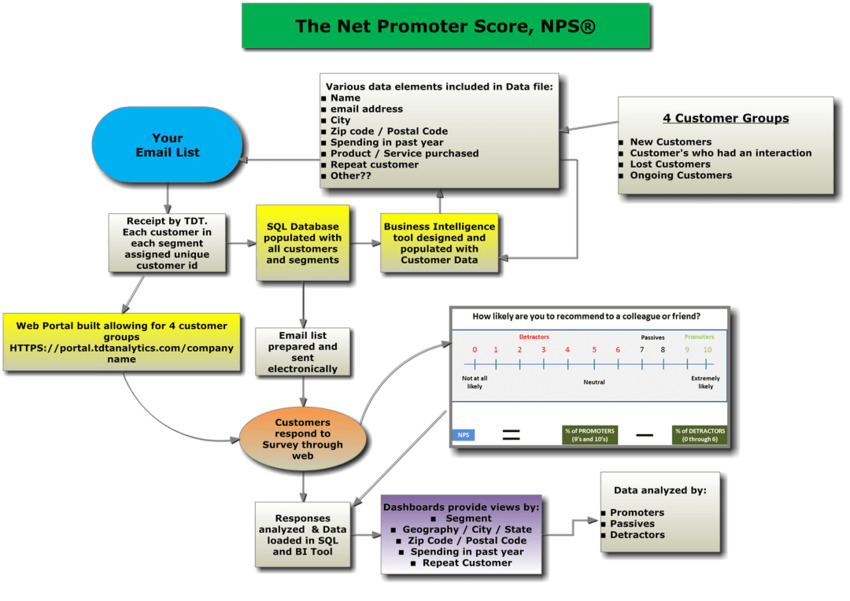1. Optimize CX:
NPS tracked across the customer journey highlights the areas which are not valued by customers (which otherwise you thought was valuable). Hence, understanding the drivers of NPS, from customer perspective, helps in prioritizing the CX and hence optimize cost.
2. Overall Health Check:
NPS mapped across the customer journey helps organizations get a bird’s eye view of their entire operation.This helps to compare performance of processes and understand which process could be the weakest link.
3. Touchpoint specific feedback:
NPS mapped across the journey will highlight challenges specific to each step of the customer lifecycle. With techniques such as advanced text analytics, it is possible to get to the root of specific problems at each stage quickly.
4. Quicker Close Looping:
If there is a problem with a specific process, NPS mapped across the customer journey helps to close loop it faster without delay or impacting other processes.
5. Bridge gaps between different department:
NPS across the customer journey helps to bridge any gap between these departments and strengthen synergies.
Research and publish the best content.
Get Started for FREE
Sign up with Facebook Sign up with X
I don't have a Facebook or a X account
Already have an account: Login

 Your new post is loading... Your new post is loading...

Mathias CASSAR's curator insight,
January 26, 2017 6:15 AM
Apprenez à intégrer et interpréter Analytics dans votre Stratégie Marketing.
|
|

















Graphic from TDT Analytics (https://tdtanalytics.com/consulting-services/net-promoter-score/). This same link gives you a nice overview of Net Promoter Score. Read that first, then come back to this article from Aureus.
Visualize your Marketing Stack. marketingIO will analyze your marketing technology and deliver a visual of your MarTech Stack. Free. Go here: http://go.marketingio.com/stack_analysis
marketingIO: MarTech for B2B Marketers. Strategy, Software, Services, Support, Staffing. Go here to submit RFQs: http://www.marketingio.com #MarTech #DigitalMarketing